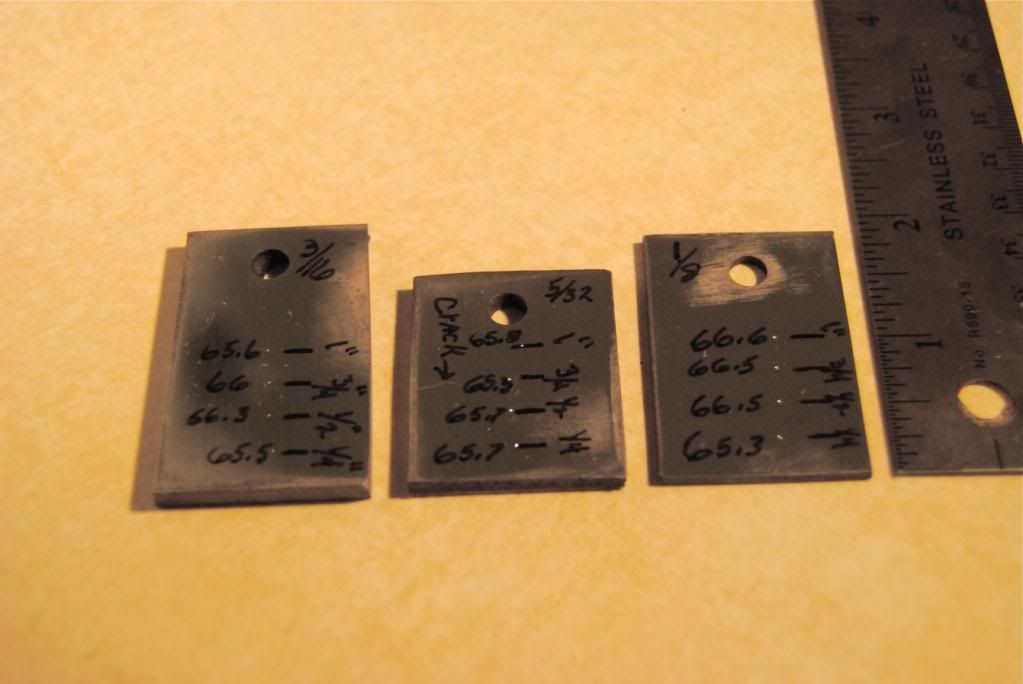One
Banned
I agree with most of that and think it was well put.
The only clarification might be that in a hypothetical situation with a quenching medium on the conservative side, if the blade were to fully harden half way up with a full quench,… theoretically, if the temps., and times were on target, there would be more of a gradual drop off in hardness towards the spine due to the thermal gradient from thin to thick. It wouldn’t be black and white, like with a clay quench. The spine should still have a relatively high degree of hardness (unless the quenching medium is way too slow),… usually enough to support the edge, add structural mass, weight and things of that nature.
However, I think that in some cases fully hardend all the way up through the spine would be theoretically better and could make a difference in the field. If you want to play it extra safe,… and if you have other reasonable or possibly better options, only use canola or any vegetable oil on 1095 pieces 1/8 to 3/16 inch thick, at there thickest point,… if you feel getting the spine fully hardened is a critical issue on any particular blade.
The only clarification might be that in a hypothetical situation with a quenching medium on the conservative side, if the blade were to fully harden half way up with a full quench,… theoretically, if the temps., and times were on target, there would be more of a gradual drop off in hardness towards the spine due to the thermal gradient from thin to thick. It wouldn’t be black and white, like with a clay quench. The spine should still have a relatively high degree of hardness (unless the quenching medium is way too slow),… usually enough to support the edge, add structural mass, weight and things of that nature.
However, I think that in some cases fully hardend all the way up through the spine would be theoretically better and could make a difference in the field. If you want to play it extra safe,… and if you have other reasonable or possibly better options, only use canola or any vegetable oil on 1095 pieces 1/8 to 3/16 inch thick, at there thickest point,… if you feel getting the spine fully hardened is a critical issue on any particular blade.


